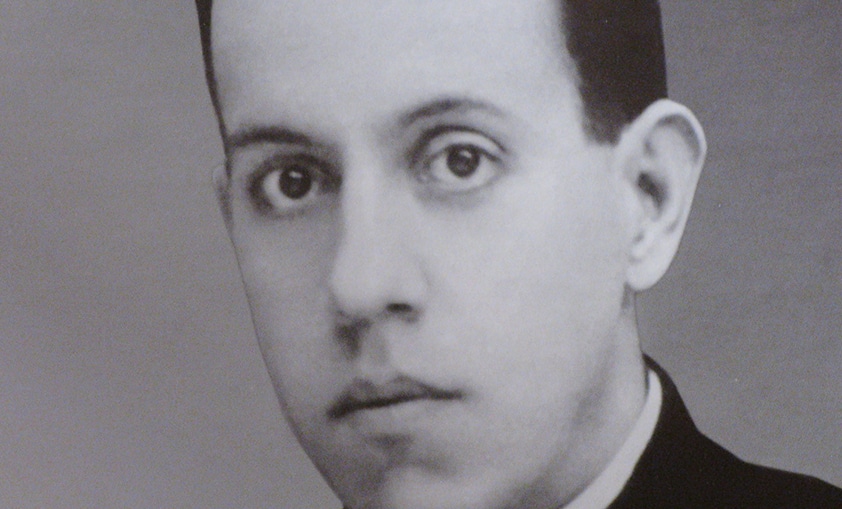When we think of our calling to be courageous in the face of the world’s opposition to our faith, we think of things like speaking out against injustice, gently calling out our strayed brothers and sisters, and setting an example of a holy life.
All these things are important in the war against evil in our modern society. But in the moment when we’re called to stand up for the truth, it might not seem like it’s that big of deal. It doesn’t feel like life or death if we might give in to the temptation to go the easy way and keep quiet.
These little moments where we choose between holiness and mediocrity that determine just how strong we’ll be able to be in the face of evil that is life and death.
It can be hard to imagine that we could face a society in our lifetime that makes us choose between our faith and our lives. However, Blessed Miguel Pro probably didn’t grow up thinking God would offer him the crown of martyrdom. Yet he developed such a habit of holiness in everyday life that when that time came to choose, he was ready.
Happy, holy childhood

Miguel was born in 1891 in Guadalupe. He was the oldest living boy of eleven children, and his family was deeply Catholic. While he was interested in spiritual matters from a young age, Miguel was also mischievous and loved practical jokes.
He was popular with girls and had the opportunity to start a rather profitable career working for his father. But instead, when his older sister entered a convent, he began to discern his vocation to the priesthood.
By the time he was twenty years old, he knew he was called to the priesthood and entered the Jesuit order.
A vocational call in chaotic times

The same year Miguel entered the Jesuit seminary, the Mexican Revolution began. The new ruling power’s anti-Catholicism forced Miguel’s order to leave the country within a few years of beginning his studies.
He continued his studies in the United States and Spain, and he was ordained to the priesthood in Belgium in 1925. His companions noted his devotion to prayer and his joyfulness in daily life.
Meanwhile, back home in Mexico, anti-Catholicism was increasing. The Church was ousted from teaching in schools, then monastic orders were suppressed. Next came the prohibition of public worship. Finally, all clergy and religious lost their civil rights.
During this time, Miguel was suffering from stomach ulcers and multiple operations. Despite his health problems, he began his priestly work in Belgium. Even in the midst of suffering, he remained joyful and faithful.
Though his health was not improving, his superiors let him go back to his homeland of Mexico. There, he relied on his wits and his faith to live out the rest of his days in service to God.
Miguel – master of disguise on a mission

Miguel didn’t just waltz into his homeland assuming he must either die for his faith immediately or renounce it and live. Instead, he used his ingenuity to serve the people who were being deprived of their faith by the government.
Miguel might show up dressed as a beggar to celebrate Mass and other sacraments. He would disguise himself as a police officer in order to gain access to condemned prisoners so he could bring them the Eucharist before their deaths. He was even known to dress as a fashionable businessman on his trips to higher class neighborhoods.
Throughout all this clandestine work among the very people who wished to kill him if only they could prove his “crimes,” he never gave in to bitterness. Instead, he remained joyful, obedient, and faithful.
Inevitable, ultimate sacrifice

The corrupt Mexican government searched for over a year for a reason to get Miguel out of their way. It wasn’t long before Miguel was blamed for a failed assassination attempt of a former president.
Miguel was arrested in 1927 along with two of his brothers. The government skipped the trial process and quickly sentenced him to death by firing squad.
On his walk from his prison cell to the courtyard where he was to be shot, Miguel blessed the soldiers. His last request was to be allowed a moment to kneel and pray. Then he stood bravely, refusing a blindfold, and faced his executioners. Before they shot him, he forgave them aloud.
He raised his arms out like Christ on the Cross. As the soldiers shot him, Miguel cried out, “Viva Cristo Rey!” which means, “Long live Christ the King!”
Blessed Miguel Pro, pray for us, that we may have courage and joy like yours, even to the death.



